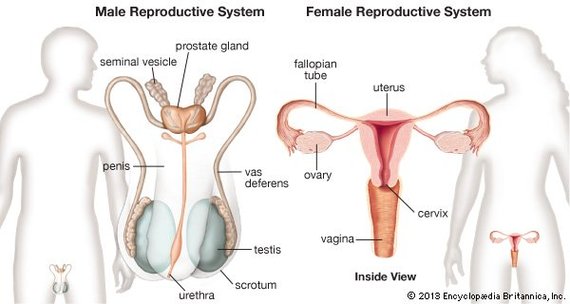Americans are afraid of sex. Having written, taught, researched, worked in and spoken about the topic over the past decade, I know this is true. In also explains why sex dominates U.S. elections and politics time and time again -- whether we're talking about marriage equality, LGBTQ service members, elected officials' sex scandals or, you guessed it, reproductive health.
Lately, I've increasingly noticed reporters use the phrase women's health as a proxy for reproductive health. To be clear, I don't think this is always necessarily a bad thing. It's just inaccurate.
Reproductive health, to paraphrase the World Health Organization (WHO), pertains to the reproductive processes, functions and system at all stages of life -- and it covers our physical, mental and social well-being, not merely the absence of disease or infirmity. Women's health, according to the National Institutes of Health (NIH), includes unique issues such as pregnancy and menopause; however, it also covers health issues that affect both men and women, such as heart disease, which might affect women differently.
Framing women's health and reproductive health as the same issue can be effective. It drives home the fact that reproductive healthcare services such as birth control prescriptions are, indeed, healthcare services. Furthermore, women's health is no less important than men's health. Call me crazy, but I don't think that statement is especially radical, nor should it be at all debatable.
Here's where politics come in. Reproductive health is about women's health, and ensuring women's access to healthcare is also a matter of equal protection of the laws. It's weird if insurance companies cover viagra, but not Addyi. Or, if they don't cover hormonal birth control medicines and prescriptions for women at all. This also explains why healthcare services that affect women but not men -- I'm looking at you, abortion! -- are so highly controversial.
While isn't important to remember reproductive health is often synonymous with women's health, here's what is missing in that equation: Such statements can unwittingly perpetuate the myth that reproduction belongs more squarely in women's wheelhouse. Men who get involved? Oh, they're just allies.
Lovers, look at the image of the male and female reproductive systems. Male plumbing looks like female plumbing turned upside down and inside out. Pretty, innit? This is my reminder to every beautiful pair of eyes reading these words: Men have reproductive tracts and they need reproductive healthcare, too. After all, women don't self-reproduce. In addition to pulling men more further into the conversation, which I believe must increasingly occur, here's what happens next: Whichever candidate, party, activist groups, and other members of civil society get sex "right" in the minds of the American people will win.
